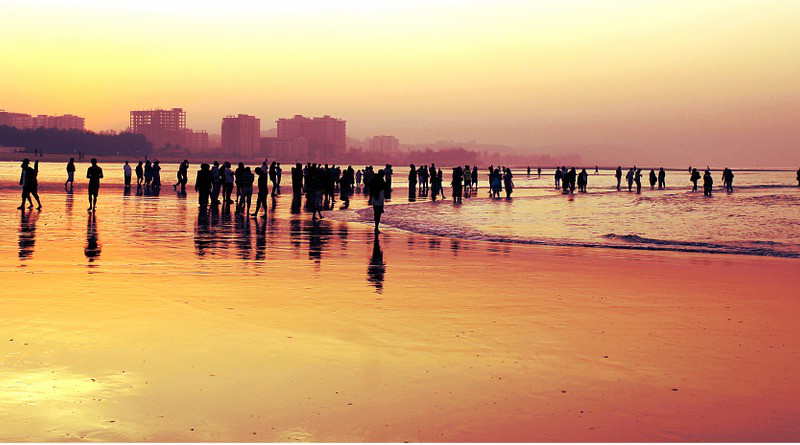Why Human Diversity Is Allah’s Will – OpEd
“If your Lord had so willed, He would have made mankind one community, but (thanks to God) they continue to remain divided.” (Qur’an 11:118)
The Torah provides important details about Allah’s ancient dispersion and diversification of human beings, and mankind’s linguistic dissemination. One understanding of the Tower of Babel (Torah Genesis 11:1-9) is that humanity arrogantly challenged God ‘s space by building a “tower; with its head reaching up to the heavens”.
This is the sin of Pharaoh. that the Qur’an refers to when Pharaoh mockingly and arrogantly asks his associate Haman to build a lofty tower. Pharaoh said: “O Haman! Fire up (a kiln to bake bricks) of clay, and build me a lofty tower, that I may mount up to the God of Moses: but as far as I am concerned, I think (Prophet Moses) is a liar!” (28:38)
However, a close reading of the Torah text also shows that what the people actually built was a whole city with a tower, not only to challenge God, but also to “make a name for themselves, lest they be dispersed over the whole earth.”
In the aftermath of Noah’s flood, generations of humans were fearful and anxiety ridden. They felt very weak and vulnerable; and they only wanted to huddle together in one place. Humanity did not want curiosity to lead people to explore other locations and thus promote change and development (going against God”s blessing to “fill up the earth” (Torah Genesis 1:28)
And they especially did not want to expand their knowledge and vocabulary because that promotes non-conformity and diversity. Humans were proud that every single human being spoke the same language, and that their one language had only “a few words” (Torah Genesis 11:1 literal translation from Hebrew).
When the post flood humans said “to one another; come let us make bricks and burn them throughly.” (Torah Genesis 11:3) they were doing much more than discussing building methods. Bricks are one of the first building materials created by human beings. Ancient brick makers learned to “burn” bricks by baking them in a very hot oven called a kiln. Manufacturing hundreds of thousands of bricks for very large building projects produced the first mass production factories.
The post flood humans wanted to build their city with uniform manufactured bricks, instead of natural un-hewn stones; where each stone is a different shape and color from all the other stones.
Allah had other plans.
This is why when Prophet Abraham and Prophet Ishmael rebuilt the ruins of the Kabah, they used stones and not bricks, especially the Kabah’s black cornerstone, and this is why immediately after the giving of the ten commandments the Torah says, “An alter of earth you shall make for me…(Torah Exodus 20:21) and “If you make me an alter of stone, do not build it of hewn stone, for if you use a tool on it, you pollute it. (20:25).
Thus, an alter of natural unshaped building materials is preferred by both the Islamic and the Jewish traditions to massed produced manufactured materials. The generations following the flood lacked both a self-confident individual identity and an established positive group identity.
Their polytheistic account of the flood, found in the ancient Epic of Gilgamesh, relates that the gods decided to destroy humanity because humans made too much noise, and kept the gods from sleeping. These early humans believed that violence was natural, normal and thus inevitable.
Wide spread human and animal violence would not be punished by polytheistic gods because, in polytheistic myths, the gods themselves spend a lot of time fighting and killing each other.
The people of Babel believed that one language would guarantee co-operation, so they would not have to learn to respect social or personal differences because there would be no differences at all between individuals or groups of people.
But Allah planed otherwise: “Let there be no compulsion in Religion: truth stands out clear from error: whoever rejects evil and believes in Allah (one God) has grasped the most trustworthy unbreakable hand hold: Allah hears, and knows all things.” (Qur’an:2:256)
They wanted only one group of people, with one and the same language for all humanity. This seemed to them to be an ideal way for humans to create harmony; and avoid strife and violence.
Their plan for the city might have been modeled on their observation of bee hives or termite mounds: lots of close contact, with a high degree of conformity and common purpose.
God knew what they are scheming to do, and what effects that master plan would have on the future of humanity; so God confounds their language, and disperses them all over the surface of the earth, in order to encourage diversity:
“Mankind were but one community; then they began to differ. But for a decree of your Lord that had already preceded, a decision would have been made regarding what they differed about.” (Qur’an 10:19)
This geographical expansion will promote linguistic, cultural and religious diversity which in turn will greatly enrich humanity’s cultural, artistic and spiritual productivity. As the Qur’an states: “And among His Signs is the creation of the heavens and the earth, and the variations in your languages and your colors: verily in that are Signs for those who know” (Qur’an 30:22)


Rabbi, are you able to provide any evidence at all to support the assertion that a god exists?
Sorry, that you were told so at the age of two does not count as evidence.